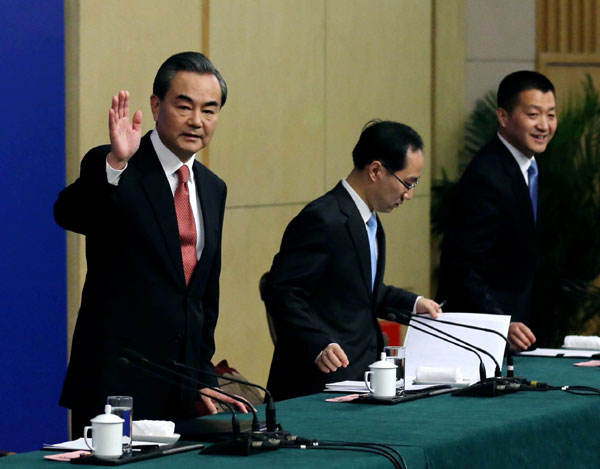Concepts of human rights
(China Daily) Updated: 2016-06-06 07:16
 |
|
Chinese Foreign Minister Wang Yi greets reporters at a press conference in Beijing March 8, 2016. [Kuang Linhua/China Daily] |
At a press conference during his recent visit to Canada, Foreign Minister Wang Yi responded to a Canadian journalist who criticized China's human rights.
Wang clarified China's progress on human rights, pointing out China has lifted 600 million people out of poverty, China has developed into the world's second-largest economy with a per capita GDP exceeding $8,000, and China has written the protection of human rights into its Constitution.
The exchange reveals the need for China to better integrate its understanding of human rights into the international discourse.
For China, the most important human right is the right to life free of poverty. So, China's development over the past decades has fundamentally improved human rights in the country. Without the right to existence and development, any other rights would have no foundation and necessary guarantee.
Universal human rights are just a utopia without the guarantee of the right to existence. Freedom, equality and other rights, which are human rights in the eyes of many in the West, including the Canadian journalist, are impossible without the right to existence. The West's concept of human rights, which has become dominant in the discourse on human rights, was produced during the Age of Enlightenment, after hundreds of years of development in the West.
The differences in development stages explain why there now exist controversies over human rights, even though China has been steadily advancing human rights on the basis of its development progress. As Wang said, other people don't know better than the Chinese people about the human rights situation in China.
China is a globalized country and its voice should be globalized. It should share with the rest of the world its concepts, including those on human rights. China has become the world's largest exporter of goods, and it should match this by being the largest exporter of concepts, then the misunderstanding of it by others, as demonstrated by the Canadian reporter, will be gone.-- IFENG.COM

I’ve lived in China for quite a considerable time including my graduate school years, travelled and worked in a few cities and still choose my destination taking into consideration the density of smog or PM2.5 particulate matter in the region.











